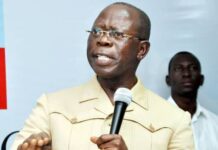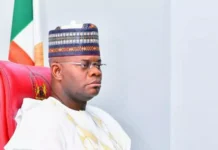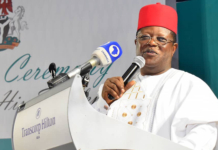Socio-Economic Rights and Accountability Project (SERAP) has urged the Group Chief Executive Officer of Nigerian National Petroleum Company (NNPC) Limited, Mr Mele Kolo Kyari, to publish details of barrels of oil Nigeria produces and exports every day and revenues generated from oil since the removal of subsidy on petrol in May 2023.
SERAP urged him to disclose how much of the revenues generated from oil have been remitted to the public treasury since the removal of subsidy on petrol.
The organisation also urged him to disclose details of payment of N11 trillion as subsidy, and to clarify allegations that the NNPCL has failed to remit revenues generated from oil to the public treasury since the removal of subsidy on petrol.
Former Governor of the Central Bank of Nigeria (CBN), Sanusi Lamido Sanusi, had, last week, alleged that the NNPCL is failing to remit enough foreign exchange into the treasury despite the removal of fuel subsidy, asking: “Where is the money?”.
In the letter at the weekend, signed by SERAP Deputy Director, Kolawole Oluwadare, the organisation said there is a legitimate public interest in disclosing the information sought.
SERAP said: “Opacity in the amounts of barrels of oil the country produces and exports daily, the revenues generated and remitted to the public treasury would have negative impacts on the fundamental interests of the citizens and the public interest.
“Transparency would ensure that the revenues are not diverted into private pockets, and increase public trust that the money would be used to benefit Nigerians.”
Ensuring transparency and accountability in the operations of the NNPCL, SERAP said, would improve the enjoyment by Nigerians of their right to natural wealth and resources.
“Combating the corruption epidemic in the oil sector would alleviate poverty, improve access of Nigerians to basic public goods and services, and enhance the ability of the government to meet its human rights and anti-corruption obligations,” the body said.
SERAP notes that Section 15(5) of the Nigerian Constitution 1999 (as amended) requires public institutions and officials to abolish all corrupt practices and abuse of power.
“Section 16(2) of the Nigerian Constitution further provides that: ‘The material resources of the nation are harnessed and distributed as best as possible to serve the common good.”
The body added that NNPCL has a legal responsibility to promote transparency and accountability in barrels of oil the country produces and exports every day, and to ensure that the revenues generated from such production and exportation are dully remitted to the public treasury.




